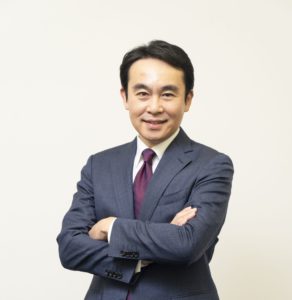
The number of regenerative medicine products approved in Japan was four when I was appointed as Vice Chairperson five years ago, significantly increasing to 19 as of May 2023. The number of regenerative medicine products under research and development is also steadily increasing. Recently, the Japanese government’s Basic Policies for Economic and Fiscal Management and Reform 2023 (also known as HONEBUTO) incorporated “Strengthening the Development of Innovative Pharmaceuticals, Medical Devices, and Regenerative Medicine Products” as part of the enhancement of drug discovery capabilities. Furthermore, the council of diet members promoting regenerative medicine has proposed that this year be the “First Year to Restart Promotion of Regenerative Medicine.” Regenerative medicine is a growth field that is expected to form into a wide-ranging market, including the contract development and manufacturing organization (CDMO) business and peripheral industry business involved in manufacturing facilities, equipment, raw materials, components, testing, logistics, and other areas. It is urgently necessary for FIRM to strongly grasp the environmental changes that support the industrialization and growth of regenerative medicine in Japan, and to resolve the many issues that span the regenerative medicine field.
To date, as one of the exit strategies, we have made recommendations for the introduction of a new pricing method that appropriately evaluates the diverse values of regenerative medicine products, because the current drug pricing system is regarded as one of the causes of drug lag/loss in Japan. As a result, significant progress was made, in that FIRM’s claims were partially reflected in the report of the meetings for “Study Group of Experts on Comprehensive Measures to Realize Rapid and Stable Supplies of Pharmaceuticals” held by the Ministry of Health, Labour and Welfare since last year. FIRM will continue to emphasize that flexible thinking and mechanisms that extend beyond existing frameworks are essential to enhance the industrialization of regenerative medicine. This applies not only to the drug pricing system, but also to other regulations and systems.
Support on entry remains one of our actions that must be addressed. Most regenerative medicine products originate from start-up companies and academia, and FIRM has been supporting them so far. In the future, we are confident that we will be able to achieve sustainable growth as an industry by contributing to strengthening the ecosystem for regenerative medicine from further upstream through collaboration with the government.
Moreover, we established the Specific Processed Cells Committee in FIRM last year to discuss and resolve issues related to activities and CDMO business under the Act on Securing Safety of Regenerative Medicine. The regenerative medicine industry consists of not only the companies that conduct research and development of products under the Act on Securing Quality, Efficacy and Safety of Products Including Pharmaceuticals and Medical Devices, but also the companies that conduct research and development under the Act on Securing Safety of Regenerative Medicine and the peripheral industries that support such companies. We expect that the three committees in FIRM, also including the Supporting Industries Committee and the Cell and Gene Therapy Products Committee, will continue to review relevant issues and formulate proposals for the progress of the regenerative medicine industry.
Finally, by building a team-led system, we aim to strengthen the operation base in FIRM as in FIRM VISION 2025 and to become a sustainable organization that supports mid- to long-term growth of regenerative medicine. Collaboration with other stakeholders is crucial for the future progress of the regenerative medicine industry, and FIRM would like to play a role in promoting various kinds of discussions as an elite group with strong expertise in regenerative medicine. Let us move forward together toward the progress of the regenerative medicine industry, by integrating the wisdom at FIRM, which comprises a wide range of industries.
Yoshitsugu Shitaka, Chairperson of the Forum for Innovative Regenerative Medicine
